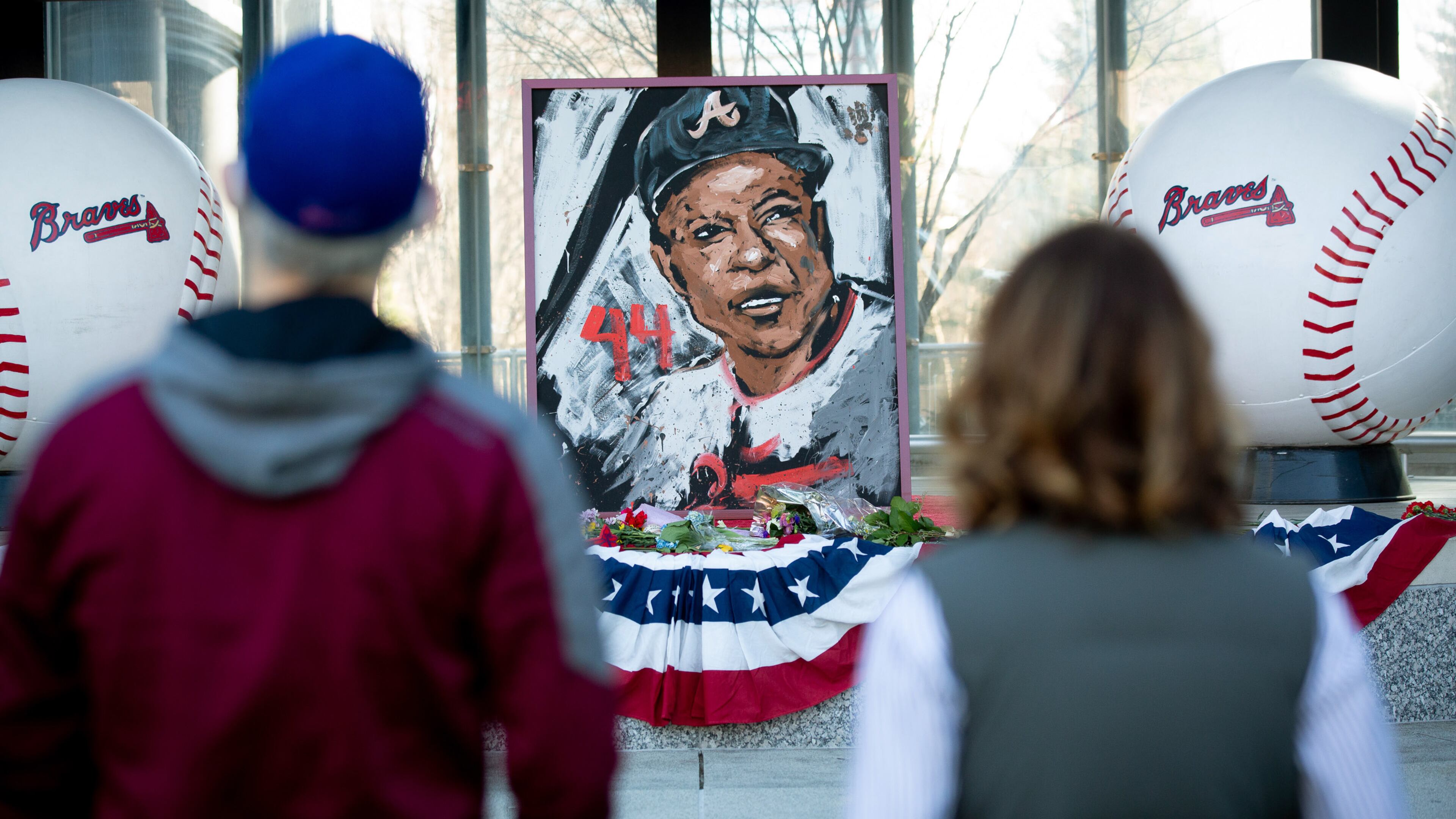Opinion: In memory of the great ‘Mr. Aaron’

Long before I aspired to be a cabinet officer or a lawyer, I wanted to be Henry Aaron. As a teenager in the early 1970s, while Aaron pursued Babe Ruth’s homerun record, I imitated Aaron’s batting stance and swing. I learned from Hank Aaron that there is no one, correct way to hit homeruns. While many power hitters have big, looping swings, Aaron’s swing was quick and compact, and he generated power from his wrists. Even in Aaron’s early years, when he was barely 180 pounds, he could, with the flick of the wrist, generate enough power to hit a ball 450 feet.

I idolized Henry Aaron – and not just because of his 755 homeruns; he was a role model as a famous, but dignified and humble Black man. In an age when Black athletes were stereotyped as charismatic, Aaron was low-key, consistent, and no-drama. In the period 1969-71 we all watched Willie Mays make a run at Ruth’s career record of 714 homeruns. At the conclusion of the 1971 season, Mays had 646. But, seemingly out of nowhere, Aaron snuck up behind Mays and finished the same season at 639. In May 1972, Aaron surpassed Mays and kept going, until he tied and broke Ruth’s record at the beginning of the 1974 season. While other players may have choked from the pressure, death threats and scrutiny on the path to breaking a legendary record, Aaron kept his cool. He tied the record with his very first swing of the bat on opening day in Cincinnati. In a post-game interview, in his own low-key way, Aaron deflected and reminded America that the day, April 4, 1974, was also the 6th anniversary of the murder of his fellow Atlantan, Rev. Martin Luther King Jr.
Even after his retirement from baseball I continued to admire Henry Aaron the man. When I was a student at Morehouse College in Atlanta in the late 1970s, I recall standing on Ashby Street (now Joseph Lowery Boulevard) watching the school’s homecoming parade. After a few minutes I looked around at others in the crowd and was surprised to notice that my idol, the greatest living baseball player, was standing a few feet away, by himself, in blue jeans. He blended right into the SW Atlanta crowd; no one noticed, and I could tell from his demeanor that Aaron was not looking to be noticed.
My favorite Henry Aaron story is one I suspect very few people know. It comes from former Atlanta Brave and former Washington Nationals manager Dusty Baker. I don’t think Dusty would mind if I repeated it. I ran into Dusty one night at a restaurant in Washington. I introduced myself, and Dusty invited me to join him and a few Nationals players. Over dinner, I asked Dusty why, as an 18-year-old from California, he agreed to sign with the Atlanta Braves in 1967. Dusty’s answer was simple: His mother had extracted a promise from the Braves that the team’s star player, Henry Aaron, would look out for her son. Aaron kept the promise, and then some: on the road, he never let Dusty stay out late, and he would bring him his hotel breakfast in the mornings. The mentorship endured for years, to the day in April 1974 when Baker was in the on-deck circle to watch Aaron hit number 715 to break Ruth’s record.

I finally got to meet my boyhood idol in November 2015, in an unexpected place – at a dinner party at the French Embassy in Washington. The room was filled with the Washington elite, but Henry Aaron and Aretha Franklin were the guests we all fawned over. Still, I was troubled that, while guests referred to me as “Mr. Secretary,” they referred to Henry Aaron as “Hank.” In the presence of all others, I made a point of giving this very dignified 81-year-old-man the respect he deserved, and referred to him as “Mr. Aaron.”
Jeh Charles Johnson is a lawyer in New York City, a former U.S. Secretary of Homeland Security (2013-2017) and a graduate of Morehouse College (class of 1979).


